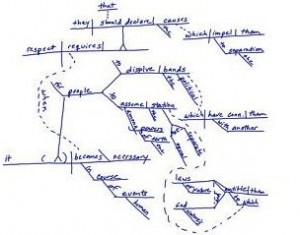 At a friend’s suggestion, I have been reading Primo Levi’s The Periodic Table. I rather skimmed through the early chapters about his relatives, but once I got to the chapter on Hydrogen, I was hooked.
At a friend’s suggestion, I have been reading Primo Levi’s The Periodic Table. I rather skimmed through the early chapters about his relatives, but once I got to the chapter on Hydrogen, I was hooked.
This is not a book about his time in Auschwitz, but about his early years and the years after the war, about life, Italy, the elements and their role in his life. He is a terrific storyteller and a lucid writer, and I’ll quote a few paragraphs here. These are completely separate but should give yo a feel for his writing:
“In January 1941 the fate of Europe and the world seemed to be sealed. Only the deluded could still think that Germany would not win…And yet, if we wanted to live, if we wished in some way to take advantage of the youth coursing through or veins, there was no other resource than self-imposed blindness… “we did not notice,” we pushed all dangers into the limbo of things not perceived or immediately forgotten… Our ignorance allowed us to live, as when you are in the mountains and your rope is frayed and about to break, but you don’t know it and feel safe.”
I often feel like we are holding that same frayed rope now.“Anyone who has the trade of buying and selling is easily recognized. He has a vigilant eye and a tense face, he fears fraud and considers it, and he is on guard like a cat a dusk. It is a trade that tends to destroy the immortal soul; there have been courtier philosophers, lens-grinding philosophers, and even engineer and strategist philosophers; but no philosopher, so far as I know, was a wholesaler or a shopkeeper.”
I might disagree about the shopkeeper, but I do know what he’s talking about! This last section comes after a description of how he performed experiments after the war:
“If a fellow professional is reading this, he should not be too surprised by this pre-Columbian and junk shop chemistry: during those years we weren’t the only ones, nor the only chemists, to live like this, and throughout the world six years of war and destruction had bought about a regression in many civil habits and attenuated many needs, first of all the need for decorum.”